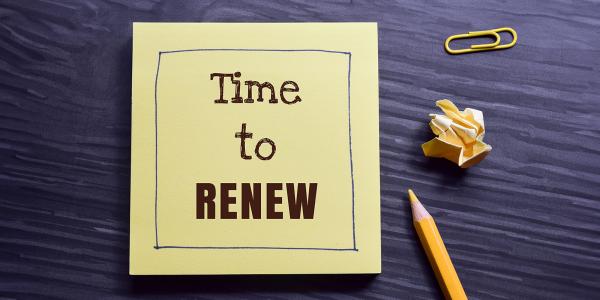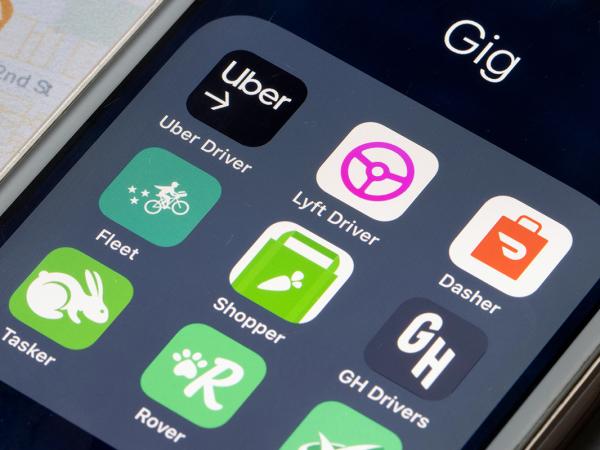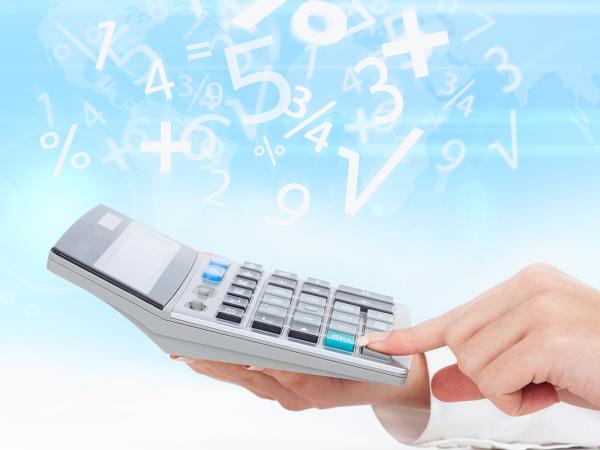Tax checks for taxi, private hire and scrap metal licences
If you are renewing a taxi, private hire or scrap metal licence, then you need to complete a ‘tax check’ before you can renew the licence. We only cover the position here if you are a sole trader (self-employed) or an employee. However, if you operate your business through a partnership or limited company, the requirements will also apply to you.

Content on this page:
Purpose of tax checks
HMRC want to ensure that everyone, including taxi drivers and scrap metal dealers, declares their income and pays their taxes.
The purpose of the tax check is to make sure that you are properly registered for tax, where necessary. If you are a self-employed sole trader, this usually means that you have registered with HMRC to complete a self assessment tax return each year.
For most people, the tax check is just a formality and should only take a few minutes.
Businesses needing to do a tax check
You will need to do a tax check if you are renewing a licence on or after 4 April 2022 in England and Wales for any of the following activities:
- driving a hackney carriage
- driving, or operating, a private hire vehicle (this includes drivers for Uber, Lyft and similar platforms)
- carrying on business as a scrap metal dealer, either at a site or as a mobile collector
Similar rules were introduced in Scotland and Northern Ireland from 2 October 2023.
In Scotland, the requirements apply to those who renew a licence to:
- drive a taxi or private hire car (PHC)
- operate a booking office
- carry on the business of a metal dealer on a site
- carry on a business as an itinerant metal dealer
In Northern Ireland, the requirements apply only to those who renew a licence to drive a taxi.
You will need to carry out a tax check before you apply to renew your licence. This applies even if you think that you do not need to send HMRC a tax return and you do not need to be registered for tax.
Applying for a licence for the first time
You do not need to carry out a tax check if you are applying for a licence for the first time – for example, if you are just starting your business.
Instead, the licensing authority (the body who issues your licence) will have to draw your attention to guidance on what you need to do to meet your tax obligations. You will also need to confirm to them that you are aware of the contents of that guidance. You can read more about what you need to do if you are applying for the licence for the first time on GOV.UK.
You would then need to do a tax check before renewing that licence.
Completing a tax check
The tax check can be completed online through GOV.UK, although a telephone service is also available. This may be your best option if you are unable to go online or find it difficult to deal with forms online.
As a self-employed sole trader, you will need to create a government gateway account as an individual, if you do not already have one, to complete the tax check online. We have a step-by-step guide to creating a government gateway account, although for a different service, here.
If you applied for a grant under the self-employment income support scheme (SEISS) during the coronavirus pandemic, you should already have such an account. Note that if you already have a government gateway account in a different capacity, like as an ‘organisation’, you will need to create a new ‘individual’ account.
When setting up a government gateway account, unfortunately you cannot currently verify your identity using a foreign driving licence or a foreign passport.
If you are unable to verify your identity online in order to create a government gateway account and complete the tax check, you should either:
- contact HMRC’s Online Services for technical assistance with creating a government gateway account, or
- contact HMRC’s Income Tax (general enquiries) and request that you wish to complete the tax check over the telephone.
For more information on applying for a government gateway account, including if you have lost or forgotten your login credentials, see our separate guidance.
Tax check questions
So that HMRC can understand how you pay any tax that may be due on the income from your licensed activity, you will be asked a few questions covering:
- what type of licence you are applying for (for example, driver of taxis or private hires),
- approximately how many years ago you first got a licence for this activity (you do not need to know the exact date),
- how long the most recent licence was valid for,
- your tax status for the relevant tax year which is being checked.
Your tax status could be, for example, ‘employee’ or ‘registered for self assessment’. If you did not owe any tax (or National Insurance) on the income you made from the activity you are applying for the licence for, you will be able to state this. HMRC may then ask you further questions to verify this is the case, but there are restrictions on what information HMRC can ask, as explained under the heading below, What HMRC are checking.
Once HMRC are satisfied that they have received all the information they require about your tax position, they will give you a 9-character code. You should provide this to your licensing authority when you renew your licence. The code is not case-sensitive.
The licensing authority will then verify that code with HMRC and be able to go ahead with your licence renewal application. The licensing authority will not have access to information about your tax affairs.
If you use an accountant or adviser to help you with your taxes, they cannot carry out the tax check for you.
What HMRC are checking
The tax check is a simple check to make sure you are registered for tax, if you should be. HMRC are not checking calculations or if you have paid the right amount of tax. As such, there are restrictions on the information that HMRC can ask you to provide.
HMRC should only ask you for information about the most recent tax year that ended more than 6 months before you start your tax check. The tax year ends on 5 April, so the 2023/24 tax year is the year from 6 April 2023 to 5 April 2024. For tax checks started up from 6 October 2023 to 5 October 2025, the relevant tax year is explained below:
- If the tax check started between 6 October 2023 to 5 October 2024, then the relevant tax year HMRC will ask for information from is the 2022/23 tax year.
- If the tax check started between 6 October 2024 to 5 October 2025, then the relevant tax year HMRC will ask for information from is the 2023/24 tax year.
There are three things that HMRC may ask you to provide in order to process your tax check:
- Information that helps HMRC determine if you need to send a tax return for that year – and if you do, that you have told them so by the relevant deadline. Note that you do not need to tell HMRC that you need to send a tax return for a tax year if they have already asked you to file one for that year.
If you are self-employed, this will include things like when you started trading and whether your turnover exceeds the trading allowance.
The request for information must be reasonable to allow HMRC to check this. For example, this will include information to allow HMRC to identify you, such as your name, date of birth, National Insurance number and unique taxpayer reference (you get this when you register to file a tax return). If you do not think the information requested by HMRC is reasonable, then you may challenge the request. - If you have already completed a tax return for the year HMRC are checking, then you will need to confirm to HMRC that you have included your income from the licensed trade on the return. The tax check process does not require HMRC to then look into that return, though they may do so.
- HMRC may also make ‘reasonable’ requests for information that helps them better understand how people work in these sectors. This may include, for example, confirmation of the type of activity you are carrying out, and details of existing licences you hold (or previous licences you have held) for similar activities.
If you do not need to send a tax return
Not everyone who is self-employed needs to send HMRC a tax return. You may not have registered with HMRC to send a tax return because you did not need to. In this case, if you need to renew a licence for an activity covered by these rules as explained under the heading Businesses needing to do a taxi check above, you would still need to complete a tax check to explain why you have not registered.
When completing the tax check online, there is an option to select ‘I had no tax to pay from using this licence during this tax year’ (or wording to that effect).
For example, this would include the case where you are self-employed but your total turnover from the licensed trade does not exceed the trading allowance (currently £1,000) and you have no other trading income or reason to file a self assessment tax return.
It may also apply if you are self-employed and your total trading income exceeds the trading allowance, but you do not have any tax or National Insurance contributions to pay because:
- your total taxable income, including from the licensed trade, is within your available personal allowance for the tax year (£12,570 for 2022/23 and 2023/24), and
- your total trading profits do not exceed the relevant thresholds for National Insurance contributions (or you are not liable to National Insurance contributions).
In this case, it is usually a good idea to file a tax return anyway – but we do not believe HMRC should refuse a tax check in these circumstances if you have not registered.
When to do a tax check
As the tax check code remains valid for only 120 days (about four months), you must complete the tax check in the 120 days before the licensing authority verifies the completed tax check code provided by HMRC.
For example, if your licence expires on 30 August 2024 then you could complete your tax check around the beginning of May 2024 (before you apply to renew your licence).
Note that it may take a few days for the licensing authority to verify the tax check code after you give it to them. If the tax check code expires by the time the licensing authority attempts to verify it with HMRC, you will need to carry out a new check and obtain a new code.
Failing a tax check
If you have not told HMRC about any income from the licensed trade and you should have done, then you should seek advice on the best way to bring your tax affairs up to date as soon as possible. This may not be as hard as you think. Our Help with tax from friends, family, professionals or other organisations page provides more information on who to contact for help. If you are on a low income, the tax charity TaxAid are familiar with these situations and can offer free, independent advice and assistance on the matter.
If you do not bring your tax affairs up to date, then you will not be able to complete the tax check and your licensing authority may be unable to process your licence renewal application which means you may not be able to work.
If you have outstanding tax obligations for several tax years, then you may wish to prioritise the relevant tax year for the tax check before dealing with the other years.
More information
Further guidance for those who need to do a tax check is available on GOV.UK.
You can also find tax check factsheets on GOV.UK which have been translated into Arabic, Bengali, Gujarati, Punjabi and Urdu.



